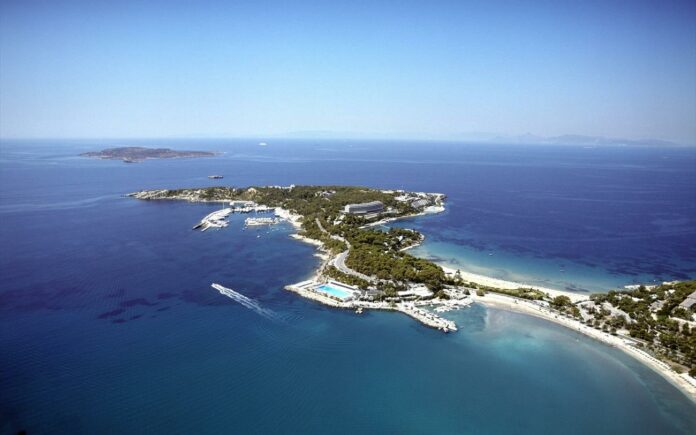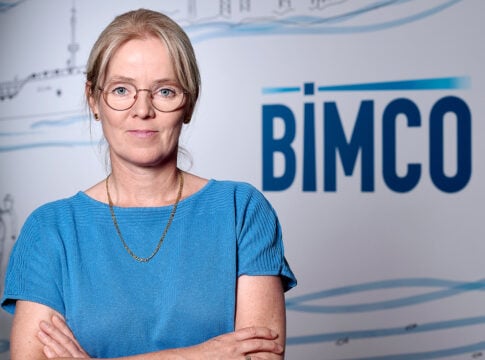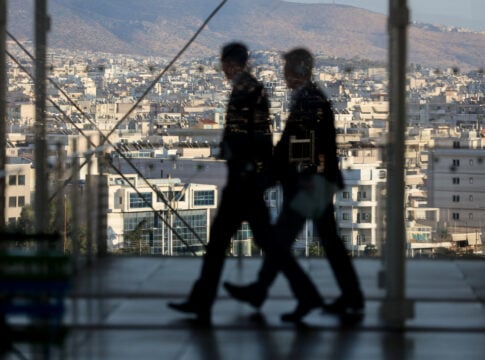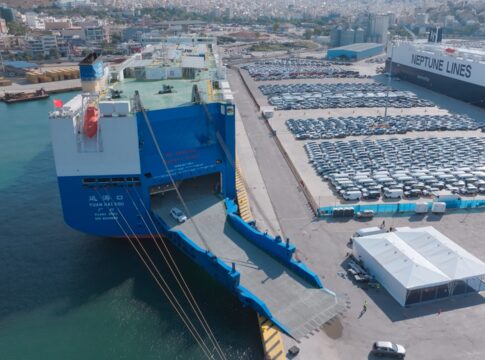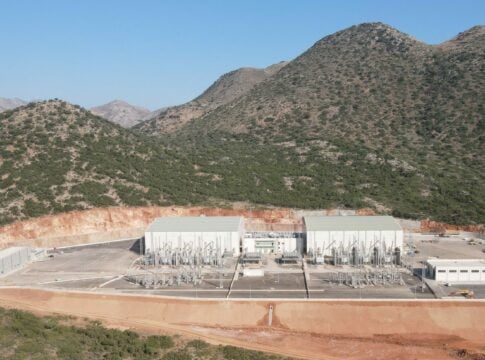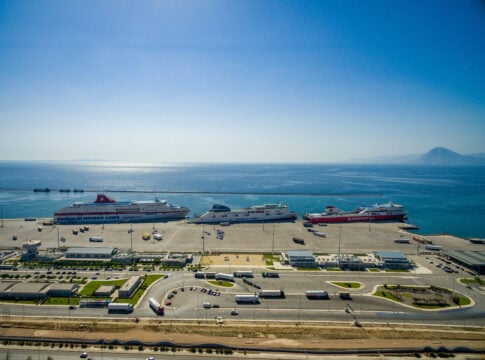Two emblematic investments in the so-called “Athens Riviera”, the coastline extending roughly from Neo Faliro southeast all the way to renowned Cape Sounion, will have a significant impact on the recovering Greek economy, two top corporate executives and a former tourism general secretary emphasized this month.
In a wide-ranging discussion on the sidelines of the annual Delphi forum earlier this month, Mario Kontomerkos, the CEO of Connecticut-based Mohegan Gaming Entertainment (ΜGE), Stelios Koutsivitis, the CEO of privatized Astir Palace and Astir Marina resort in Vouliagmeni, as well as former National Tourism Organization (GNTO) general secretary Dimitris Tryfonopoulos spoke with the “N” group executive editor Christos Dogas over the unprecedented impact on the tourism and real estate sector that further development of the upscale coastal stretch entails.
For instance, construction and operation of Europe’s first integrated casino resort (IRC) at the Helleniko concession has raised expectations of attracting up to 10 million visitors a year, they noted. The gaming concession within the overall Helleniko project is judged as imperative for the entire seven-billion-euro investment to proceed, something that the Lamda Development-led consortium that won an international tender for the site has repeatedly emphasized.
In a direct reference to Helleniko, MGE CEO Kontomerkos said implementation of the massive investment would place the Greek capital at the “center of the world”.
His casino and gaming multinational is one of several international companies that have expressed an interest in the Helleniko IRC, itself a “cornerstone” provision in the overall concession contract.
Kontomerkos reminded that Athens is, on average, only a two-hour flight away from 19 countries that correspond to 6 percent of the world’s population, but with 25 percent of the global GDP.
He pointed to examples in Singapore as a model for integrated gaming resorts, such as the Marina Bay Sands and Resorts World Sentosa, which boosted tourist arrivals to the SE Asia island state by 40 percent.
“With Athens’ position, its excellent infrastructure, next to the sea and 20 minutes away from the airport, we have the opportunity to promote this destination to our 30 million customers,” he stressed.
In pointing to MGE’s model, he referred to a “complete experience”, where a visitor arrives for a weekend to play golf, enjoy fine dining and attend a concert. “Only 4 percent of the total facility is taken up by the casino; the rest of the space will be allocated for other activities”.
The discussion on the margins of the increasingly prominent Delphi Forum comes amid an ongoing tender for a 30-gaming license at the Helleniko site, with a deadline of April 22, 2019 for submitted offers.
On his part, Astir Palace Vouliagmenis CEO Stelios Koutsivitis said his company aims to re-establish what was Greece’s foremost resort, in previous decades, as a premier international luxury destination.
The Vouliagmeni resort includes most of a jutting promontory in southeast coastal Athens, in the eponymous and upscale Vouliagmeni municipality.
The current master plan includes the opening of a Four Seasons hotel, international brand-name restaurants, an upgraded marina and a new residential zone with 13 luxury holiday villas.
“Our investment exceeds 650 million euros, and is being successfully implemented step-by-step,” he said, adding that the benefits for the burgeoning “Athens Riviera” include the elimination of whatever uncertainty, on the part of investors, that such projects cannot be implemented in the country.”
“Complex investments need simplified licensing and town planning procedures; significant steps have been taken, compared to the past, but we must proceed with even faster steps. Certainly, the element of (high) tax rates is an issue, and a more favorable tax regime could possibly lure investors,” he said.
Finally, former National Tourism Organization (GNTO) general secretary Dimitris Trifonopoulos referred to what he called the need to implement a national plan for the all-important sector.
He said that based on global projections, Greece will be able to attract 50 million visitors annually by 2030.
“I am concerned, however, over whether infrastructure can keep up. A national dialogue is necessary to hatch out a national plan. There are regions (in Greece) that don’t even have sidewalks. We must choose which tourism product we want (for the country), then create and develop infrastructure,” he said.


